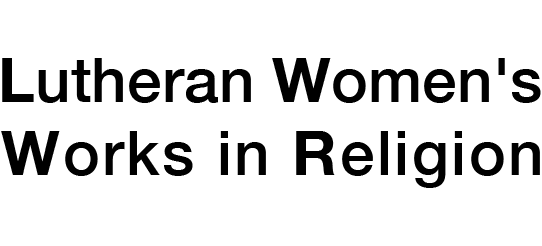Item Type: Journal Articles
THEOLOGY
Carol LaHurd "Striving Toward the Garden: The Concept of Peace in Islam" fall In The Journal of World Peace. vol. VII, 1990 : 11-16In contrast to popular misunderstandings of Islamic principles of warfare and of the concept of jihad, the article examines the layers of meaning of “peace” in Islam and the classical rules for external warfare in Islamic scripture and tradition.
The essay compares and contrasts the stories and significance of the Abraham figure in the scripture and traditions of Judaism, Christianity and Islam and proposes how Abraham can be both a divisive and unifying factor for contemporary dialogue and relations.
Referring to her own experience teaching in Roman Catholic universities and with ecumenical relations and dialogue, LaHurd examines the significance for Lutherans of the papacy of John Paul II and Cardinal Ratzinger’s 2005 election as Pope Benedict XVI. Also considered are magisterial theology and the 1999 Joint Declaration on the Doctrine of Justification.
BIBLICAL STUDIES
Carol LaHurd "Luther‘s Legacy in the Women‘s Bible Study" Spring In Dialog: A Journal of Theology. vol. 45, no. 1, 2006 : 29-35The article traces the history of Lutheran women’s Bible studies in the United States back to the late 1800s, reports reflections of contemporary Bible study authors and participants, and analyzes the role of biblical critical methods and Lutheran theology in such studies. With Susan McArver and Diane Jacobson.
In response to McVann’s “Reading Mark Ritually: Honor-Shame and the Ritual of Baptism,” this essay summarizes McVann’s application of Victor Turner’s ritual model and assesses support for McVann’s thesis about Jesus’ status transformation in Mark’s gospel, while raising larger questions about the functioning of ritual in relation to boundaries and the experiences of reading and hearing narrative texts.
Drawing on personal interviews with six Arab Christian women living in the United States, the article reinterprets the Luke 15 parables in light of the women’s own responses to the parables and their experiences of life in the modern contexts of Egypt and Lebanon.
This article is an expansion and updating of the chapter described in The Daemonic Imagination edited by Detweiler and Doty.
The essay answers the question of how and when biblical critical methods can be used in combination and ways in which the texts themselves encourage shifts from one method to another. The particular test case is George Kennedy’s rhetorical analysis of the Sermon on the Mount in Matthew 5-7.
ETHICS
Carol LaHurd "Bowling Alone but Working and Worshiping Together" Winter In Dialog: A Journal of Theology. vol. 47, no. 4, 2008 : 385-395The article summarizes the strengths and weaknesses of the Evangelical Lutheran Church in America on the occasion of the church’s 20th anniversary, highlights the increasing diversity in the denomination, and emphasizes the importance of the strong ecumenical work that continues to take place, both nationally and internationally. Commitments to social justice, global connectedness and economic stewardship are also discussed.
In the aftermath of the first Persian Gulf War, the authors describe economic and political characteristics of the Arab Middle East, the effects of that 1991 conflict, and Arab aspirations for change. Also explored are potential positive roles for American churches and Christians.

